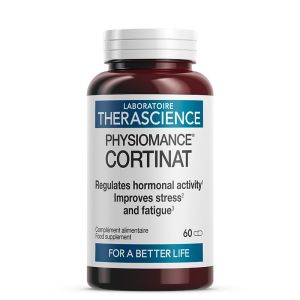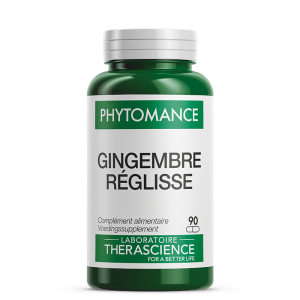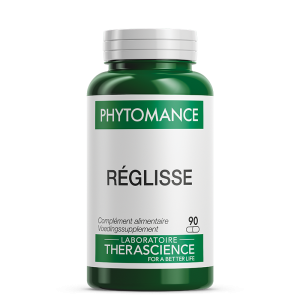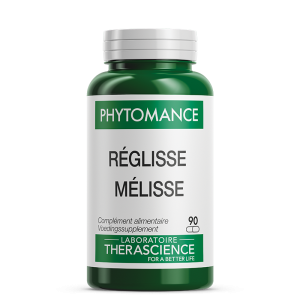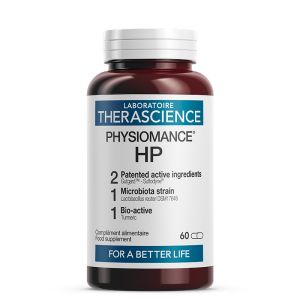Liquorice
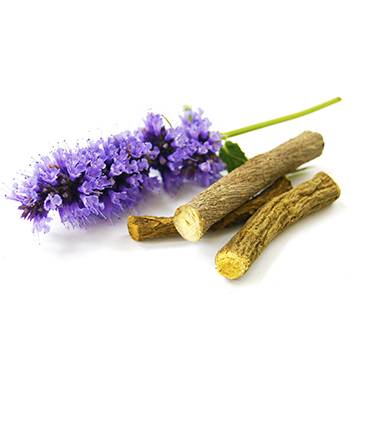
Latin name :
Glycyrrhiza glabra L.
Common Name :
Liquorice
Family :
Fabaceae
Origin :
Europe, Asia
Part of the plant used :
Root
Description
Licorice, Glycyrrhiza glabra, is a herbaceous plant of the Fabaceae family that can reach 1.5 meters.
Known since the Antiquity, licorice was used by the Greeks and Romans to regulate the functions of the stomach. This plant has a special place in traditional Chinese medicine, as it is one of the ten most important herbs.
Known for its benefits to the digestive system, licorice helps relieve abdominal pains and heartburns in cases of dyspepsia (pain and bloating).
Used in phytotherapy, licorice root contains triterpenic saponosides, which are the most interesting molecules of the plant. The deglycyrrhizinated licorice stimulates the production of mucus by the stomach, thus allowing to reinforce its natural protective effect against the acid secretions, and to decrease by there the risks of peptic ulcer. Licorice has immunostimulant properties due to glycyrrhizin, but also to polysaccharides contained in its root. These molecules are responsible for the increase of phagocytosis (process of destruction of foreign micro-organisms) as well as the production of T and B lymphocytes. Moreover, glycyrrhizin has a sweetening power 50 times more important than that of cane sugar.
Moreover, glycyrrhizin has antibacterial effects and prevents the adhesion of Helicobacter pylori bacteria to the stomach wall.
Moreover, thanks to its richness in flavonoids, licorice has antispasmodic properties. Other properties are associated with this plant, in particular a neuroprotective and memory stimulating ’s effect thanks to glabridine, a molecule extracted from its root. Licorice also has an anti-inflammatory action on the respiratory tract. It thus allows to calm irritations associated with inflammations such as laryngitis, bronchitis or tracheitis.
Finally, licorice has estrogenic, osteoblastic (creation of osteoblasts, cells that ensure the formation of bone tissue) and healing properties.
The benefits
Licorice is traditionally used to facilitate digestion and contribute to digestive comfort. Its active substances help maintain normal functioning of the mucous membranes of the stomach and small intestine.
In addition, this plant has tonic properties and helps to maintain energy levels. Licorice supports the function of the entire reproductive and urinary systems. In men, it supports prostate's health.
At the cerebral level, licorice helps intellectual rest and participates in the resistance of the nervous system. It also has an indication at the level of the osteoarticular system by helping to maintain the health and comfort of the joints.
Licorice root supports natural defenses and has significant antioxidant properties, thus helping to fight against cellular stress. In addition, it helps to maintain a good complexion.
Its compounds soften the upper respiratory tract while helping to keep it clear.
The particularities of THERASCIENCE
Used in PHYSIOMANCE®HP, THERASCIENCE Laboratory's patented Gutgard™ licorice extract is obtained through a gentle and unique extraction process, thus ensuring a high concentration of flavonoids, the plant's active molecules. This process also ensures a low glycyrrhizin content to limit certain side effects such as hypertension.
Clinical studies have shown a decrease in symptoms of functional dyspepsia and a reduction in Helicobacter pylori contamination after taking GutgardTM.
To learn more, click on Gutgard™.
Our products based on Liquorice
-
€29.80
-
€30.90
-
€30.90
-
€30.90
-
€68.10











